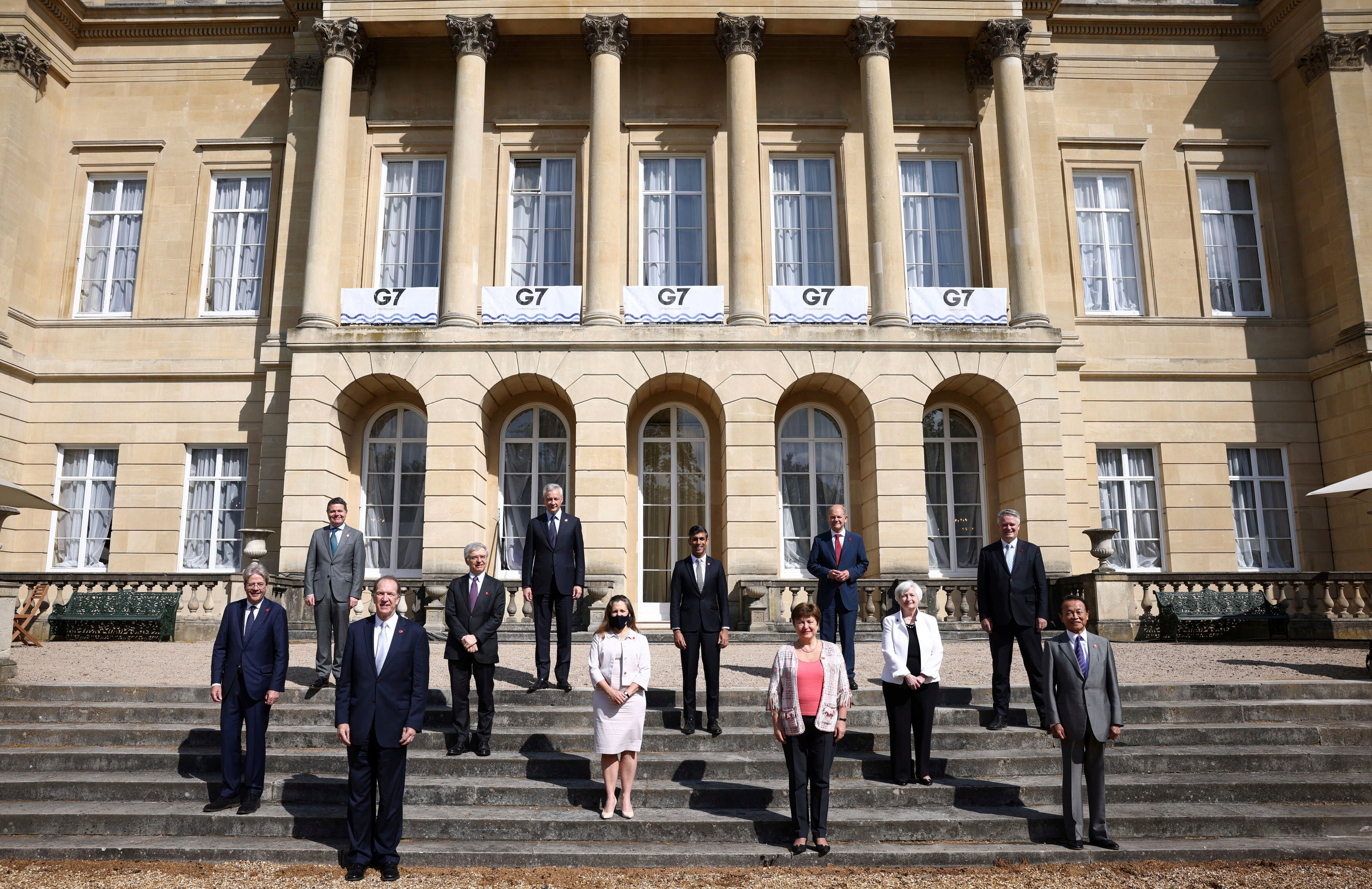Don’t be snooty about global cooperation – the G7 summit could prove vital for post-Covid recovery
We are not out of the woods yet, and anything that this meeting of international leaders can do to help us will be massively welcome, writes Hamish McRae


G7 summits are about geopolitics, not economics or finance. That is the concern of the finance ministers and central bankers because the heads of government have a lot of other things on their plate. But the meeting this week will matter in economic terms for two reasons.
First, it is the first overseas visit by Joe Biden, and will show that the US is back in the game of trying to sustain an open world economy, in sharp contrast to the previous administration.
Second, thanks to the strong (maybe over-strong) economic boom in America, the US will be pretty much back to its pre-pandemic levels in the next month or so, whereas, according to the OECD, the UK and Europe have a bit of a way to go. So there is practical leadership, not just political leadership.
The G7 is not as important as it was in the 1970s when its precursor was founded. At that time, its members – the US, Japan, Germany, France, the UK, Italy and Canada – accounted for about 80 per cent of global GDP. Now, according to the World Bank, it is more like 45 per cent.
Fortunately, one of the fast-growing giants, India, has also been invited, along with South Africa, Australia and South Korea. So, on my quick tally, well over half the world economy will be represented in Cornwall. But there will be no China, no Brazil and no Russia – Biden will meet Vladimir Putin in Geneva at the weekend, but their concerns will be security, not economics.
So what should we look for? The biggest thing will be any hints as to the way the recovery will unfold through the coming months. One driver will be the pace of vaccine rollouts. We are all now very well aware that as far as viruses are concerned, no country is an island; unless you totally shut down all travel – a measure that carries huge costs – they will race around the world.
Therefore, quite aside from any moral imperative, it is powerfully in the self-interest of the developed world to help the emerging world have better access to vaccines, either on a bilateral basis or via the World Health Organisation’s Covax programme
Next, we need to know about travel. Before the pandemic, tourism and travel constituted about 10 per cent of the world economy. The International Monetary Fund points out that while some of the poorest countries have been hit by the collapse of international tourism, there are parts of the developed world that have been savaged too.
For Italy, Mexico and Spain, tourism accounts for about 14 per cent of GDP. It is a particular issue for Britain, for though the UK has a net deficit on tourism, and home holidays have boomed, London is the world’s single-largest passenger air hub. So let’s see what emerges about restarting international travel now that, in most of the developed world, a majority of people have had at least one vaccine jab.
We also need to know about plans and progress towards cutting carbon emissions. This is such a huge and troublingly politicised area that what is really new and important must be sorted from the mass of pious statements. I don’t think it is helpful to pay too much attention to what is said. Rather we should look at practical ideas that emerge that could speed up the transition to a low-carbon economy.
Remember, too, that China emits a larger amount of greenhouse gases than the whole of the developed world put together. There is zero point in attacking China for this. But let’s see what emerges that might nudge changes of policy there. We need some sense as to whether the forthcoming COP26 climate conference in Glasgow in November is likely to be a triumph or a disaster, or fall somewhere in between.
Finally, I will be looking for top-level support for the deal that the G7 finance ministers reached last weekend to impose a minimum 15 per cent corporation tax rate. That agreement has been criticised as not going far enough, but to get any agreement at all was a real milestone in global tax cooperation. It has never happened before. However, agreements are only as good as their enforcement – enforcement in spirit as well as in law. So let’s see to what extent the heads of government support their finance ministers.
It is easy to be cynical about grand economic summits. Most in retrospect are less important than they seemed at the time. Who remembers what happened in 2005 or 2018? But we should also recall the way international cooperation, led by Gordon Brown, helped rescue the world economy after the financial crash of 2008. I know he was jeered at for his slip of the tongue, saying he had saved the world – but we should not be snooty about global cooperation.
We are not out of the woods yet, and anything that this G7 can do to help us clamber out more swiftly will be massively welcome.
Join our commenting forum
Join thought-provoking conversations, follow other Independent readers and see their replies
Comments